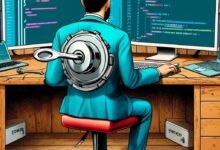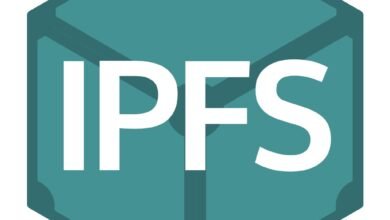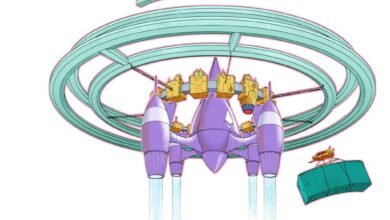
Danielle Braff, de Crain’s Chicago Business, me envió algunas preguntas por correo electrónico para hablar sobre el efecto de la pandemia en sobre los contenidos impartidos en los MBA de las escuelas de negocios, así que pude hablarle de mi caso y de muchos que conozco de compañeros dentro de IE Business School. Ayer publicó su artículo titulado «The business world has changed. MBA curriculums have responded«, en el que me cita.
Que los contenidos de las asignaturas de un MBA cambien y se actualicen para reflejar los cambios que ha experimentado la sociedad durante algo tan dramático y trascendental como una pandemia entra dentro de lo absolutamente lógico: hablamos de contenidos diseñados para situar a los que los reciben en un entorno, el del management, de naturaleza enormemente dinámica, y de metodologías que tratan de apoyarse siempre en elementos actuales, que demuestren al alumno que su formación está completamente vinculada con el mundo real.
Así, además de incorporar, lógicamente, todo lo relacionado con la gestión del trabajo en entornos distribuidos, que los alumnos vivieron por sí mismos durante la época de los confinamientos y que, lógicamente, debe amueblarse con las metodologías de gestión y las herramientas adecuadas o propiciar la discusión sobre el futuro de las relaciones laborales, hay una buena cantidad de temáticas que la pandemia ha convertido en claramente más relevantes, que van desde la emergencia climática y la descarbonización a la crisis de la cadena de suministro, pasando por cuestiones como la respuesta a crisis, etc. Por lo general, de manera natural, la inmensa mayoría de los cursos en un MBA tienden a incorporar, como mínimo, en torno a un 15% de contenidos o materiales nuevos de un año para otro, generalmente por requerimiento de la propia escuela a través de sus directores de área, en parte porque se percibe como una necesidad, y en parte por evitar el efecto de «ese caso de hace veinte años» que se discute en un contexto cuyos elementos ya son todos completamente diferentes hoy. Con la pandemia, ese porcentaje, decididamente, se ha hecho bastante más significativo. Y creo que es muy razonable que sea así.
Si en las asignaturas de tu escuela de negocio no se reflejan este tipo de cosas, y se sigue estudiando cómo eran los negocios antes de la pandemia, preocúpate: probablemente no estás en la escuela de negocios adecuada.
A continuación, el texto completo de las preguntas y respuestas que intercambié con Danielle:
Q. Have you noticed how MBA curriculums (the content) have changed their curriculums to reflect post-pandemic business practices? If so, can you please explain?
A. Of course MBA curriculums have changed since the pandemic stroke, it couldn’t be otherwise. To begin with, students can now attend sessions from anywhere they want as soon as they have a good reason to do so: it started with students who were falling sick and had to stay at home, but now it applies to anyone who has a valid reason for being someplace else, from visa issues to urgent trips, recruiting interviews, etc. The students can keep participating since the professor sees them in a large monitor, and they can raise their hand and speak up, show an article, or slides, etc. as if they were physically present in the classroom. Some professors like to conduct intensely participative sessions in synchronous mode using apps like Mmhmm or others, just to get their students more used to the way of working in many companies nowadays, or even sessions in Decentraland or other metaverse-like environments. But besides variations in the format of the class that build on the experience that both professors and students had during the pandemic (which was phenomenal and lead to great student evaluations in general), there have been many changes in the topics being discussed in class in many courses. Now we see a wide array of contents related to managing distributed companies, attracting and recruiting distributed talent, managing digital transformation (since digitally transformed companies were much better in handling the pandemic), and of course, a lot of content in all types of courses related to decarbonization and the climate emergency, since the pandemic gave us an opportunity to see how could we keep working in difficult circumstances whilst generating much less carbon dioxide. In entrepreneurship, for instance, students now learn how to build a company in the new environment, where VCs or investors no longer require you to move to their countries in order to fund you. In Innovation, they discuss how to foster innovative environments in a distributed company, or how to redesign processes to make them more prone to becoming distributed. There’s a huge amount of innovation in the MBA curriculum every single year, but after the pandemic, we definitely saw an influx of new issues coming from the experience…
Q. How do you expect these changes to continue in the near future?
A. Most of these changes will consolidate, since the situation in most companies seems to be solidifying these changes. Few companies are insisting in bringing everyone back to the office, so we want to train our students to perform in the new environment generated after the pandemic, where they can work from pretty much anywhere, build distributed companies or DAOs, understand the evolution of the web towards Web3 and cryptography, or why the metaverse is not just a glorified videogame, but a new version for a cryptographically enforced web. We are trying to increase students’ familiarity with the crypto world, from Proof Of Attendance Protocols (POAP), to other tokens they will for sure be using in their professional endeavors. The key here is to see the business environment as highly dynamic, a dynamism that has been clearly increased by the pandemic, and get them to feel they can be very competitive in these newly redefined business environments. Imagine a student that gets an appointment for an interview in Decentraland and her avatar arrives running because she doesn’t know she can hold the shift key to just walk normally? That would reveal a shameful lack of familiarity with the metaverse environment, don’t you think? As a university, we need to get our students to feel at ease in every environment where business is being conducted, and that’s why we think many of these changes are here to stay.
Q. Which courses do you believe are more important for MBA students to take now; and which courses aren’t as important as they were pre-pandemic?
A. I don’t think courses are becoming less or more important due to the pandemic: marketing, finance, people management or information systems are still as important as they were before, it is just that now they need to redefine their contents to include how things have changed due to the pandemic. If you teach people management, you will obviously need to include contents related to managing distributed companies… do you imagine a professor showing up in a class and saying «ok, forget about all this pandemic thingy and let me teach you how we used to do things before» … the students would kick the professor out of the classroom immediately! We are not eliminating courses, but we are asking our professor to place special efforts in keeping their contents updated and relevant, as we used to do before the pandemic, only that this time, the changes are more intense and fast.
Q. What other changes have you noticed MBA programs are doing post-pandemic?
A. I notice more efforts to accommodate, for instance, virtual recruiting processes, interviews, etc. via video conference, to foster the use of online environments, etc. I see clearly more guest speakers in classes, since the pandemic made us realize we could bring guest speakers from anywhere in the world and in very interactive formats. Students love to discuss a case and the, sometimes by surprise, get the CEO of the company showing up in the class and addressing them, like «the case in flesh and bones». Before the pandemic, video conferences were used in very few occasions, but now, after the pandemic gave us so much familiarity not just with Zoom, Teams or the like, but also with more sophisticated tools like Mmhmm, virtual cameras, polls and surveys in real time, etc., we are profiting from that familiarity on both sides, professors and students. I like to say that before the pandemic, I was «just preparing a class», but now «I produce my class», like a TV producer, but interactive!
Also available on Medium, «How the pandemic has changed MBA content«














